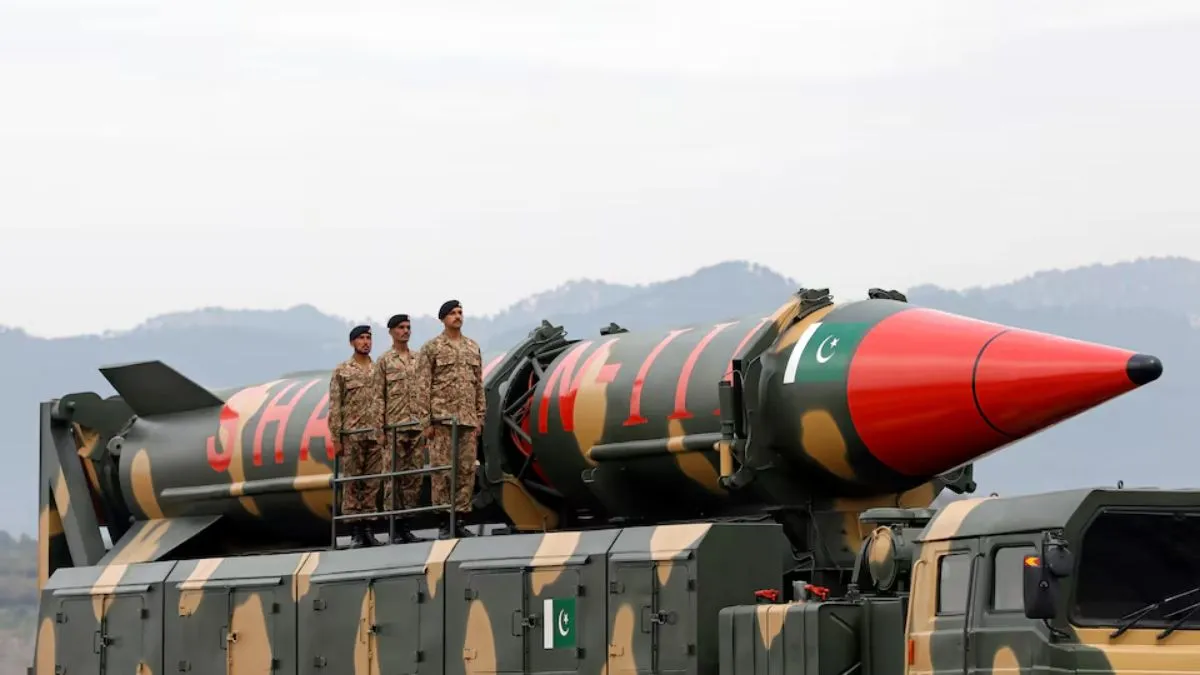- By Imran Zafar
- Sun, 22 Dec 2024 04:48 PM (IST)
- Source:JND
The United States has imposed sanctions on four Pakistani entities, including the state-owned National Development Complex (NDC), citing their involvement in advancing Pakistan’s missile program. The move, which marks the first such action against a Pakistani state-owned enterprise tied to missile development, has sparked concerns over already strained US-Pakistan relations after a senior White House office stated that Pakistan’s missile program may hurt US interests and security.
US Accusations Of Threats To National Security
A senior White House official, Deputy National Security Adviser Jon Finer, stated that Pakistan’s missile program poses a potential threat to US national security. Addressing the Carnegie Endowment for International Peace, Finer explained that Islamabad is developing long-range ballistic missile capabilities that could strike targets beyond South Asia, including the United States.
“Pakistan has developed increasingly sophisticated missile technology, from long-range systems to advanced testing capabilities for larger rocket motors,” Finer said. He warned that such advancements, if unchecked, could enable Pakistan to target US assets and territories.
The US sanctions come in response to Pakistan’s recent missile advancements, including a training launch of the Shaheen missile with a range of 2,750 kilometres and the test of the Ababeel missile, equipped with multiple independent re-entry vehicles (MIRVs). Both developments have raised alarms in Washington, particularly given their potential to target US bases in the Middle East and beyond.
NDC's Role In Missile Development
The NDC, established in 1990 and linked to the Pakistan Atomic Energy Commission (PAEC), has played a pivotal role in Pakistan’s missile program. It has produced the Shaheen and Nasr missile series and is involved in the production of transporter erector launchers (TELs). Recent activities, including collaborations with Chinese engineers, have further elevated Pakistan’s missile capabilities, prompting the US to take action.
In 2024, Pakistan demonstrated significant advancements in its missile program, including the launch of the Hangor 2-class submarines and a missile launch from a naval frigate. These developments, seen as enhancing Pakistan’s strategic capabilities, have been viewed as a direct challenge to US Indo-Pacific plans and regional stability.
Pakistan's Response
Pakistan dismissed the US allegations as baseless and unfortunate, asserting that its missile program is intended solely for regional stability and self-defence. The Foreign Office (FO) issued a statement criticizing the sanctions as biased and counterproductive, warning that such actions could exacerbate military asymmetries in South Asia.
Mumtaz Zehra Baloch, Pakistan’s Foreign Ministry spokesperson, reiterated that the country’s strategic capabilities are aimed at maintaining credible minimum deterrence against threats from India. “Pakistan’s strategic program is to protect its sovereignty and maintain peace in the region,” she said, highlighting that the US allegations reflect a lack of historical understanding.
Implications For US-Pakistan Relations
The sanctions have further strained the already complex relationship between Washington and Islamabad. Once close allies during the Cold War and in the fight against al-Qaeda, the two nations have seen their ties fray over issues like Pakistan’s support for the Taliban, its nuclear weapons program, and US alignment with India.
Pakistan has expressed concerns over the growing US-India defence partnership, which includes advanced missile systems and technology transfers that Islamabad views as destabilizing. Despite the challenges, Pakistan maintains strong ties with China, which has been a key supplier for its missile program.
Pakistan's Nuclear Capabilities
Pakistan’s missile and nuclear programs, developed as deterrents against India, have been a cornerstone of its defence strategy. The country conducted its first nuclear test in 1998, two decades after India, and now possesses an estimated 170 nuclear warheads, according to the Bulletin of the Atomic Scientists.
